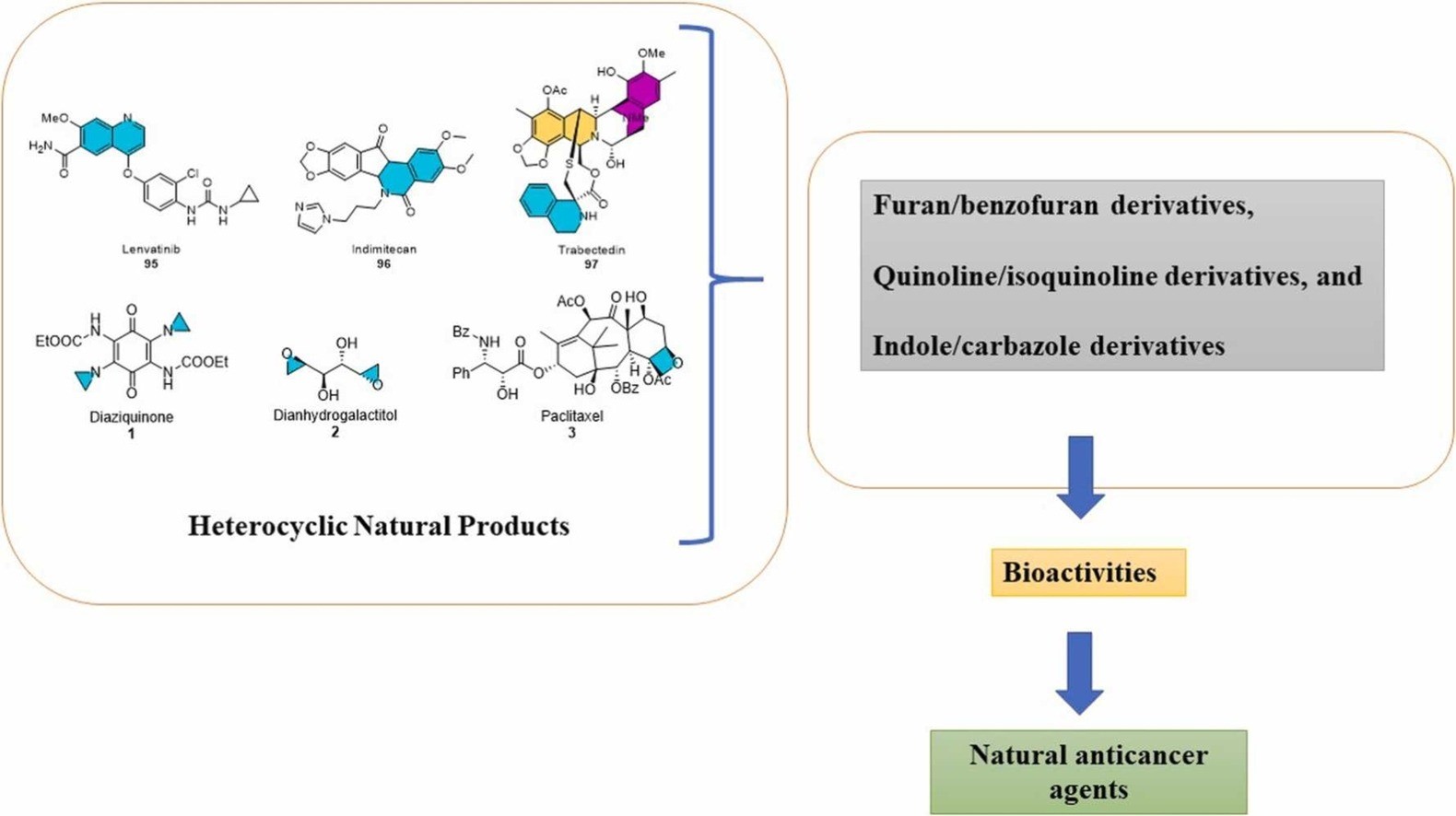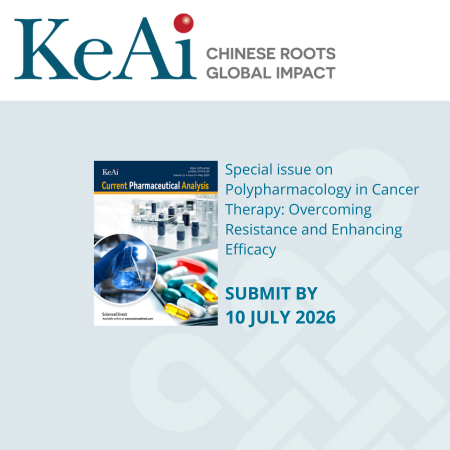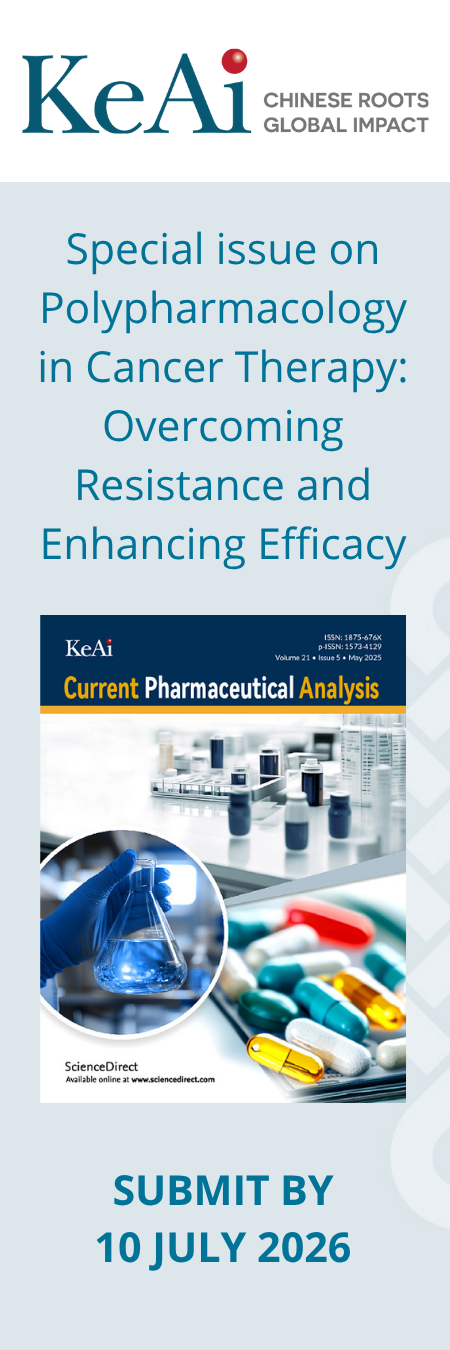Recent synthetic endeavors on anticancer heterocyclic natural products
Published 22 May, 2025
A notable number of anticancer drugs consist of heterocycles, owing to their capability of interacting with the biotargets like nucleic acids, enzymes, and receptors. Nature has a massive repository of molecules consisting of heterocyclic rings with strong or potentially significant anticancer activity against a plethora of cancer cell lines and tumor micro-environments.
In a review published in the KeAi journal Current Pharmaceutical Analysis, a duo of researchers in India considered three families of natural products containing the heterocycle cores: furan, quinoline and indole, for their in-vitro and in-vivo anticancer activities. They also discussed how their synthesis was carried out.
“We encountered multiple promising anticancer drug candidates, particularly viridin, muricatetrocin B, jimenezin, pancrastatin, quinocarcin, and aleutiananmine, that possessed sub-micromolar half-maximal inhibitory concentrations,” shares co-author Tirth Chauhan. “This level of activity is required as blood concentrations of such drugs can reach into the low micromolar range.”
A key takeaway from the review was that a large proportion of the aforementioned natural products still consists of multiple steps with low yield to be effectively used for trials and subsequent manufacturing.
“Furthermore, minimization of the use of heavy metal or noble metal catalysis is an evergreen goal to promote green chemistry,” adds corresponding author Manan Shah.
Relatively new technologies such as artificial intelligence (AI), database-directed reaction planning, continuous-flow chemistry and electrochemistry can facilitae not only ‘green’ synthesis, but also convenience.
“Tweaking of ADME (absorption distribution metabolism excretion) may be explored with analogs produced from modular synthesis, to allow purely natural to a nature-like pharmaceutical product synthesis,” says Shah.

Contact author details:
Shah, Manan; Department of Chemical Engineering, School of Energy Technology, Pandit Deendayal Energy University, Gandhinagar, Gujarat-382426, India; manan.shah@spt.pdpu.ac.in
Conflict of Interest:
The authors declare that they have no known competing financial interests or personal relationships that could have appeared to influence the work reported in this paper.
See the article:
Chauhan, Tirth; Shah, Manan; A systematic and comprehensive review of the properties and synthesis of anticancer heterocyclic natural products; Current Pharmaceutical Analysis, Volume 21, Issue 6, March 2025, Pages 145-168; https://doi.org/10.1016/j.cpan.2025.01.002

